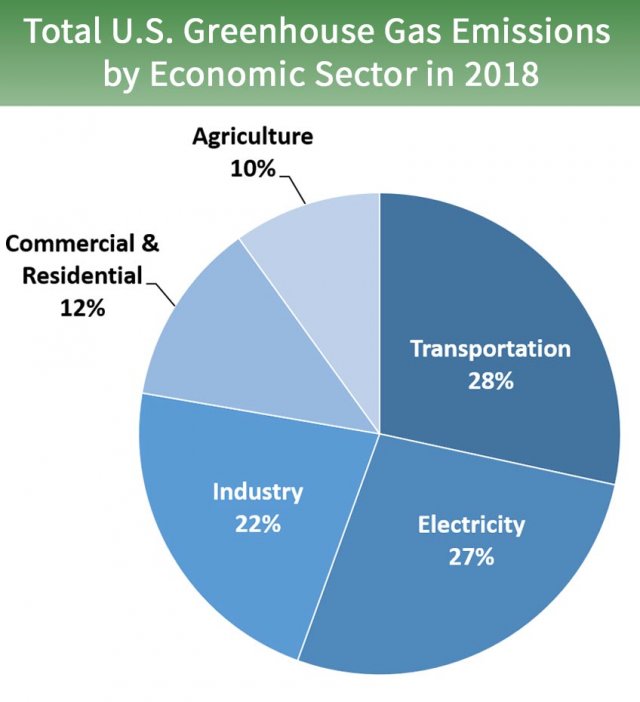I posted the following on the ENB thread and I thought others who invest in Pipelines and O&G industries might find the information useful. At the very least, it might arm you for the inevitable discussion with your kids.
Let's start with Canada Canada contributes 1.5% of all global GHG emissions and the number is shrinking as a percentage. China contributes 25.8% and their GHG numbers are growing. The USA contibutes 12.8% and their numbers are shrinking faster than Canada
UNTIL CHINA GETS ON BOARD with reducing green house gases, the best efforts of the rest of the world will help but won't solve the plantet's Green House Gas problem
While the contributions of Canada, the USA, Europe, Japan, and even Russia to GHG emissions are shrinking: "
Between 2005 and 2016, global GHG emissions increased by 19.3%, from 38 679 to 46 141 megatonnes of carbon dioxide equivalent (Mt CO
2 eq)" as seen below:
 What contributes to Green House Gases:
What contributes to Green House Gases:
Now let's take a look at what contributes to Green House Gases. Electricity ranks just slightly below transportation (27% vs 28%)

"In the USA, 63% of electricity comes from burning fossil fuels, mostly coal and natural gas"
"Coal is the single biggest contributor to anthropogenic climate change. The burning of coal is responsible for 46% of carbon dioxide emissions worldwide and accounts for 72% of tgreenhouse gas (GHG) emissions from the electricity sector."
"Natural gas emits 50 to 60 percent less carbon dioxide (CO2) when combusted in a new, efficient natural gas power plant compared with emissions from a typical new coal plant"
Is it just me, or are we focusing on the wrong thing? It is relatively simple to stop the use of coal and replace it with natural gas and the impact would be significant. Let's do the math:
If we replace coal with natural gas in America as the power source required for electricity, we can reduce overall GHG by 0.55 x 0.72 x 0.27 = 10.69%.
In many countries such as India, where coal accounts for 75% of all of the country's needs for energy, the GHG savings that clould be achieved by using natural gas would be substantial. The good news is that India is building a natural gas infrastructure for which Russia will supply the fuel.
Replacing coal with natural gas is a no-brainer when it comes to reducing GHG and it can be accomplished quickly and relatively inexpensively.
Also of note is that 9.9% of GHG emissions are created by agriculture, most of which is due to the production of meat from cattle. If people cut back their consumption of beef by half (not 100%) we would reduce GHG emissions by 5%. Doesn't it seem like a win-win to make an easy transition to cutting back a bit on excessively over eating colon blocking meat to achieve a significant drop in global GHG emissions?
Let's take a look at transportation:
As you can see below, cars use about 45% of the total oil products used in trasportation. Since transportation accounts for 28% of all GHG emissions, if we reduce that by 45% over the next ten years by converting to EV's would save 0.45 x 0.28 = 12.6%

SUMMARY: If we replace coal with natural gas to energize our electricity needs (10.69% reduction of GHG), and cut back our consumption of beef by half (5% reduction of GHG emissions), and replace ICE automobiles with EV's (12.6% reduction of GHG), the sum of the simple measures would achieve almost a 30% reduction in Global GHG
I don't have a clue what actually causes global warming and how much each factor contributes.
"While the oil sands have been painted as a high emitter of greenhouse gases, in reality, oil sands developments only account for 12% of Canada's GHG emissions and about 0.15% of global GHG emissions. However, Canada's oil sands industry continues to reduce GHG emissions intensity"
I dont think shutting down pipelines and driving the economy of Alberta and Canada into the dirt is the answer when there are far better and less damaging solutions at our disposal.